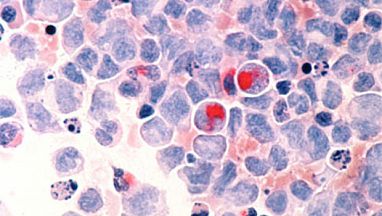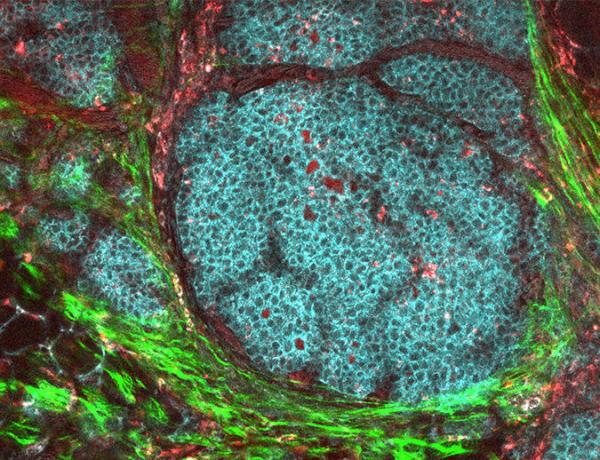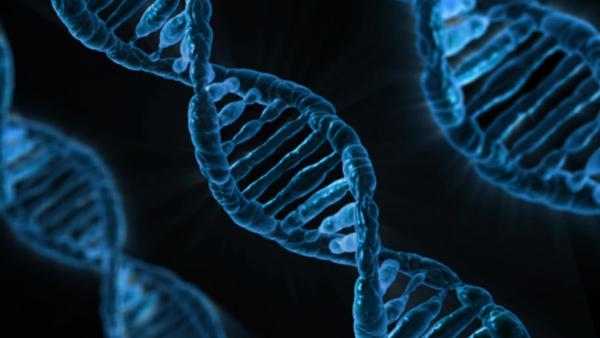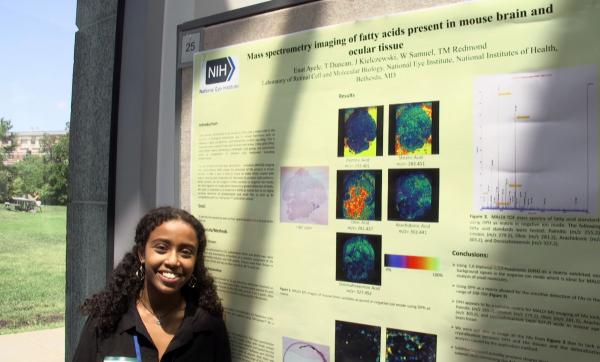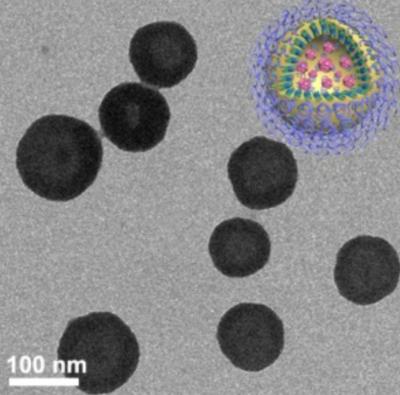A Country-Spanning Cancer Collaboration
Scientific Team-Up Identifies Source of Tumor Drug Resistance
It’s an unfortunate reality that nearly everyone knows somebody whose life has been affected by cancer. However, a discovery by two researchers who met by chance years ago might one day help more cancer patients overcome their disease. Two scientific teams led by the IRP’s Craig Thomas, Ph.D., a group leader at the NIH’s National Center for Advancing Translational Sciences (NCATS), and Daniel Starczynowski, Ph.D., of Cincinnati Children’s Hospital Medical Center, recently published a study describing a possible breakthrough in the fight against acute myeloid leukemia (AML), a form of cancer responsible for nearly 11,000 deaths per year in the United States.

